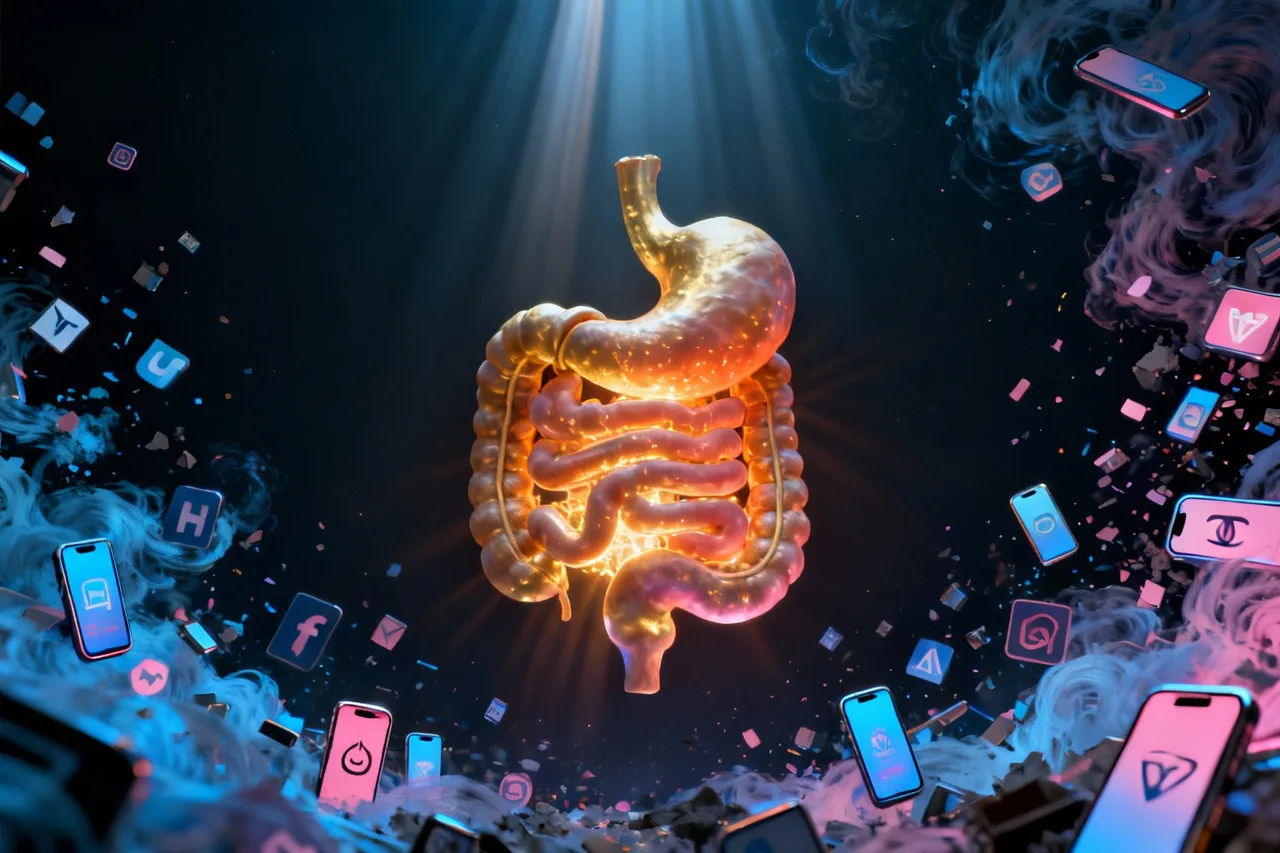
Prescription medication is something that is, for many, part of daily life. Some claim that the real epidemic our society should be worried about is not the legalization of cannabis and all things marijuana-related but the prescription medication that many individuals in today's society are recommended to take. With the rising glamorization of prescription medication, seen most recently in Moschino's pill-themed Spring 2017 line, it's no surprise that there is rising interest and curiousness about why certain pills look the way they do. Pills come in many colors but only two forms, capsules and tablets. But what is the actual difference between a capsule and a tablet? Does one work better than the other?
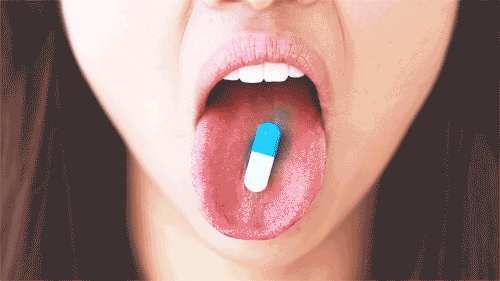
The answer to the latter would be yes and no, but we'll get to that shortly. First it must be explained that tablets come in a solid form of compressed powder that is composed of a mixture of active and inactive ingredients that are "punched." Capsules are made two gelatin half shells that are called the 'male' and the 'female,' they fit together to create the capsule. The gelatin shell of the capsule is filled with medication that is either in a powder or jelly form. Capsules tend to be easier to swallow than tablets and are also made to enter your bloodstream immediately, tablets take longer to dissolve.
Capsules are usually used for more sensitive drugs because the containers (gelatin shells) are much more resistive to oxygen than a tablet. Not only are capsules relatively more expensive but their shelf-life is usually shorter than tablets. Capsules are the cylinder-shaped pills that have the smooth non-powdery surface. Again, capsules are instantaneously absorbed into the bloodstream and are relatively tasteless and easy-to-pop.
Tablet Capsule
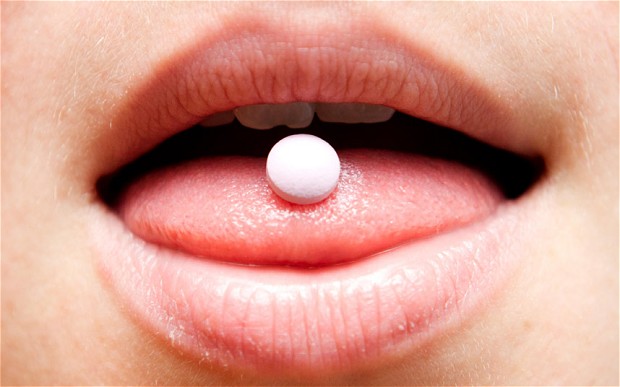
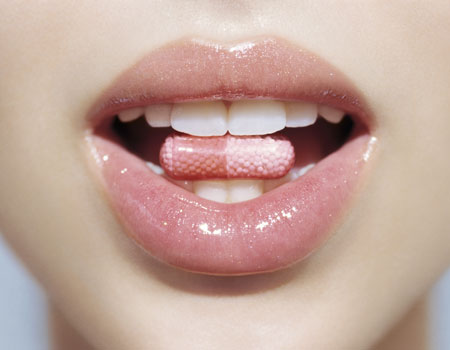
Tablets come in a compressed powder form and are a little more difficult to swallow compared to capsules. Where capsules are tasteless, tablets vary in taste but can be anywhere between sweet and bitter. The good thing about tablets is that they are usually less expensive than capsules and are shaped in oval, round, or square forms.
Circling back to the question of whether one form is stronger or better than the other, the answer again is yes and no. The difference in the "strength" of the forms is in the particular medication itself. When a drug is in tablet form, it means that the dosage can be split. It also means that you may have the option for dissolution control, you can adjust so that your medication's release is quick, delayed, or extended. And yet capsules can hold more unique and stronger mixes of ingredients. NOWfoods gives a great breakdown of the different advantages and disadvantages:
ADVANTAGES OF CAPSULES
- Unique mixes of ingredients are possible
- Sealed hard gelatin capsules can be good oxygen barriers
- Protection for sensitive ingredients
- Capsules can be opened to obtain powdered ingredients
- Reduced gastrointestinal irritation
- Odorless, tasteless, easy to swallow
- Oil and fat-soluble nutrient delivery
ADVANTAGES OF TABLETS
- Widely accepted, elegant
- Custom size, shape, and appearance
- Scored tablets make it possible for dose splitting; NOW Foods sells only a few scored tablets
- Typically have lower cost
- Preferred delivery for products with large amounts per serving due to compressibility
- Chewable tablets can be consumed by multiple demographics
- Controlled release agents used in tablets can aid specific nutrient uptake
- Low cost coatings for enteric delivery when necessary
- Dissolution control for quick, delayed, or extended release
DISADANTAGES OF CAPSULES
- Bulky materials can result in large capsule size
- Ingredients can interact with capsule shell
- Limited fill weight based on capsule volumes
- Variation in fill volume is known to occur
- Can be more costly
- Softgel contents restricted to a tight pH range
DISADVANTAGES OF TABLETS
- Potentially poor disintegration in the GI tract, unless properly controlled for disintegration
- Granulation technique can add heat/moisture to components
- Potential sensitivities to coatings
You may also like

What Changes When Glp-1s Become Pills

Fibermaxxing Explained: Hype, Help, and How-to

Why Whimsy Sparks Joy in a Burned-out World

Digital Detox, Minus the Retreat (and Hype)
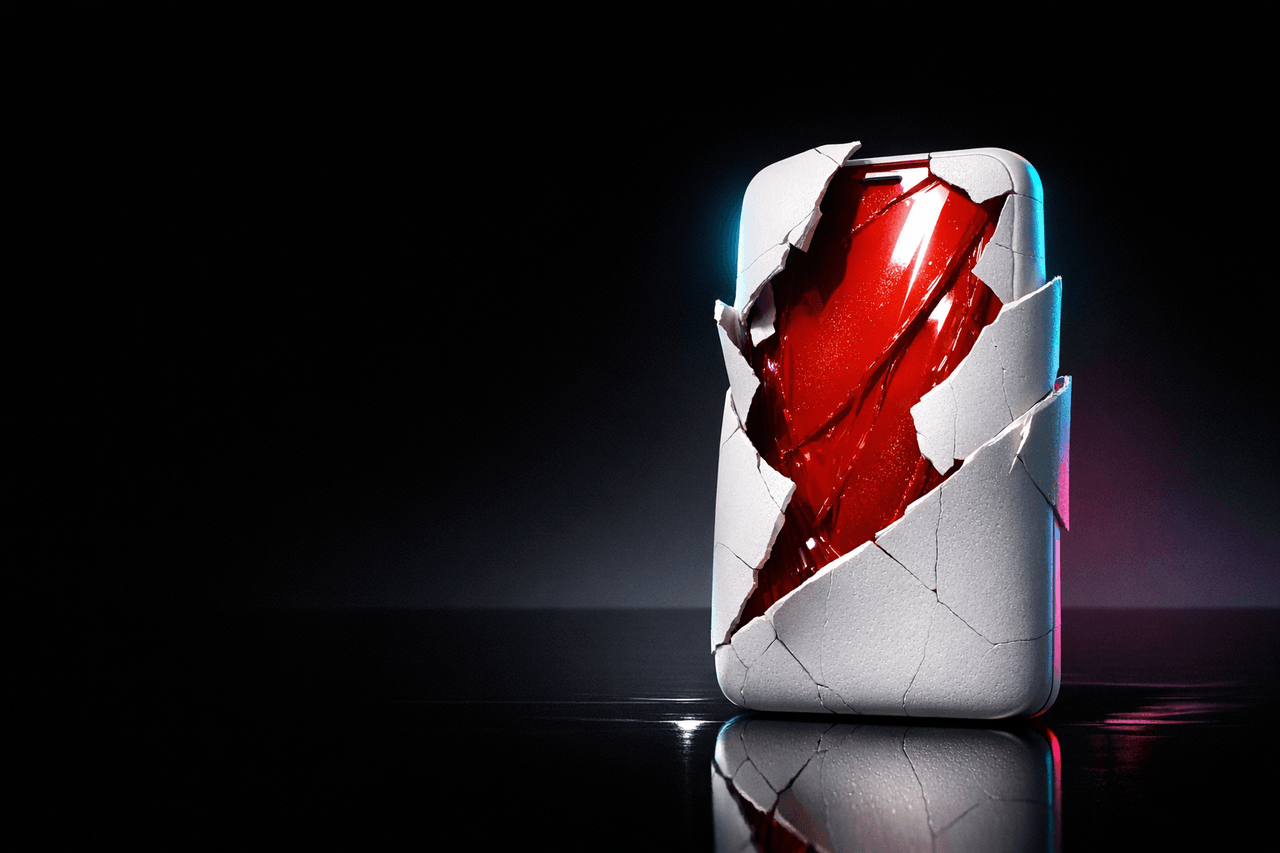
Why Tiktok's "Becoming Chinese" Feels So Good
